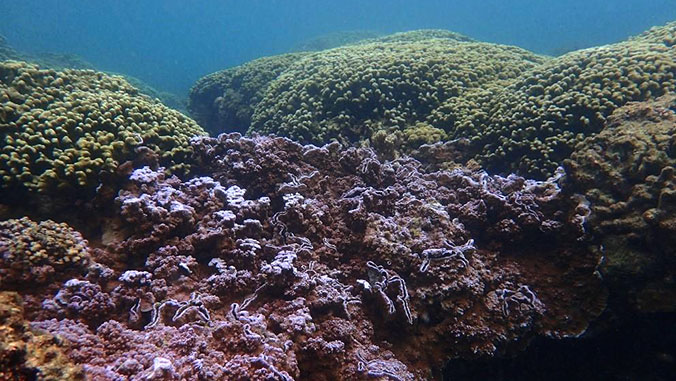
The Hawaiian blue rice coral may reveal important clues as to how some corals might weather climate change according to a team of scientists from the University of Hawaiʻi at Mānoa and the Smithsonian Institute. The coral produces a protein that not only imparts the deep blue color, but also acts as a natural sunscreen. The team hypothesized that this sunscreen filters out harmful ultraviolet (UV) radiation that may be detrimental to coral reproduction. The findings are published in Nature Scientific Reports.
Coral reproduce by releasing eggs and sperm into the water column. As climate changes and the ocean warms, coral become stressed. This can also affect their ability to reproduce and sustain healthy reefs. If coral cannot reproduce, they cannot adapt to changing conditions in our oceans.
With the Hawaiʻi Institute of Marine Biology (HIMB) at UH Mānoa School of Ocean and Earth Science and Technology as their research base, the Smithsonian team conducted long-term monitoring on coral reproduction of two coral species in Kāneʻohe Bay.






